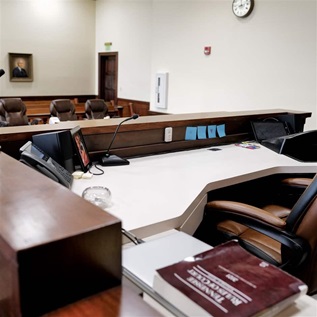The Pew Center for Arts & Heritage Announces 2012 Philadelphia Cultural Management Initiative Grant Recipients
Philadelphia, PA- The Pew Center for Arts & Heritage has awarded $831,900 through the Philadelphia Cultural Management Initiative (PCMI) to eight arts and culture organizations in the Philadelphia area.
PCMI grants provide valuable resources for organizations from a wide variety of fields to achieve greater organizational dynamism and adaptability. The 2012 funded projects demonstrate creative thinking from a range of institutions—many of which currently find themselves at critical junctures in their organizational development.
The Conservation Center for Art and Historic Artifacts provides behind-the-scenes assistance to over 1,000 small and medium-sized institutions throughout Pennsylvania whose collections require ongoing maintenance and care. It will develop an online fundraising program, modeled after Kickstarter and Indiegogo, which will allow its constituents to collect private donations to pay for these conservation projects, while raising public awareness of the Conservation Center and some of the region's most noteworthy artifacts. A new initiative, “Pennsylvania's 10 Most Endangered Artifacts,” will offer select local institutions the opportunity to nominate objects in need of funding, such as historically significant manuscripts and artworks, 10 of which will be chosen and presented online for visitors to vote and contribute funds for their favorites.
Fleisher Art Memorial will implement new communication strategies meant to bridge the gap between its artistic programming and the rapidly evolving South Philadelphia community in which it is located. Fleisher currently attracts participants who reside mainly outside its neighborhood, and its offerings largely remain invisible to the organization's surrounding immigrant communities. At the core of this project will be a group of community representatives who will work as liaisons between Fleisher and local residents, and who will advise Fleisher on the development of new, culturally specific programs and workshops.
Musicopia provides music education to 40,000 students throughout the Delaware Valley each year. Its programs, including residencies that place musicians in schools to work directly with children, are custom-tailored to meet the needs of students and teachers; however, the schools vary widely in terms of their technological capacity to support instruction. To address this, Musicopia will launch the Mobile Equipment for Technology-Enhanced Residencies (METER) initiative, which will bring multimedia technology such as laptops, projectors, microphones, and video cameras to classrooms for the first time. The initiative will provide low-income and high-income schools access to the same resources, greatly enhancing the quality of instruction for all students.
Nichole Canuso Dance Company is a small organization that has reached a high level of artistic accomplishment. The company seeks to build a flexible, internal fundraising structure that can grow or contract accordingly as the scope of its projects changes with each year. This adaptable structure will allow Nichole Canuso to avoid additional costs, particularly the hiring of additional full-time staff, and will provide the company with more time to concentrate its efforts on its creative programming.
“This year's grants reflect the diverse and innovative ways that cultural organizations improve their operations and management systems to propel both program quality and audience engagement. Each promises to make a significant contribution to the grantee organization, and holds the potential to offer valuable lessons to the field as well," notes Paula Marincola, Executive Director of the Center.
For the complete list of 2012 Philadelphia Cultural Management Initiative grant recipients and full project descriptions, please refer to the 2012 grantee roster or visit www.pcah.us/management.
“PCMI helps organizations strengthen their relationships with audiences and build sound organizational and financial bases on which to support consistently high levels of program quality,” says Greg Rowe, Director of Culture Initiatives at The Pew Charitable Trusts. “We are delighted to be supporting such a wide range of strategies that thoughtfully respond to the unique opportunities facing each of these organizations.”
Grantees are selected by a panel of arts and culture professionals from around the country with experience in various aspects of the management field. For a full list of 2012 panelists, advisors, and their credentials, please see the 2012 grantee roster or visit www.pcah.us/management.
Since its inception in 2001, the Philadelphia Cultural Management Initiative has awarded over $8.1 million in project grant support to organizations that deliver exceptional programming and outstanding cultural services to people in the five-county region.











